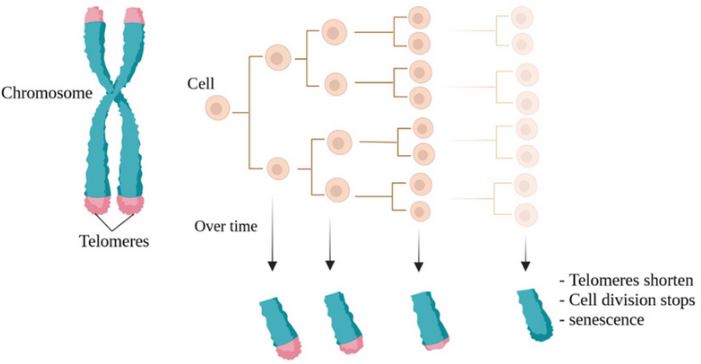From UPSC perspective, the following things are important :
Prelims level: Hayflick Limit

Why in the News?
Leonard Hayflick, the renowned biomedical researcher who made a discovery about the limits of cell division in somatic cells (Hayflick Limit) has passed away at 98.
What is the Hayflick Limit?
- In the early 1960s, Hayflick discovered that somatic (non-reproductive) cells have a finite number of divisions, typically between 40-60 times.
- This phenomenon, the ‘Hayflick limit’ suggests that aging occurs because cells eventually stop dividing.
- This leads to the accumulation of senescent cells that contribute to the aging process.
- The “ultimate Hayflick limit” for humans is estimated to be around 125 years.
- Beyond this, no amount of lifestyle changes or medical interventions can extend the human lifespan.
- Hayflick’s discovery has been applied to cells from various animals, revealing different Hayflick limits based on species’ lifespans.
- Ex. Galapagos turtles, have cells that can divide approximately 110 times, whereas laboratory mice have a much lower limit of around 15 divisions.
Broader Implications and Research
- Hayflick’s discovery led to the discovery of telomeres in the 1970s.
- Telomeres are protective DNA sequences at the ends of chromosomes, which shorten with each cell division.
- When telomeres reach a critical length, cell division stops, which correlates with the Hayflick limit.
- In the 1980s, scientists discovered telomerase, a protein capable of replenishing telomeres, which is naturally active in cancer cells, allowing them to bypass the Hayflick limit.
PYQ:[2011] Regular intake of fresh fruits and vegetables is recommended in the diet since they are a good source of antioxidants. How do antioxidants help a person maintain health and promote longevity? (a) They activate the enzymes necessary for vitamin synthesis in the body and help prevent vitamin deficiency (b) They prevent excessive oxidation of carbohydrates, fats and proteins in the body and help avoid unnecessary wastage of energy (c) They neutralize the free radicals produced in the body during metabolism (d) They activate certain genes in the cells of the body and help delay the ageing process |
Get an IAS/IPS ranker as your 1: 1 personal mentor for UPSC 2024

